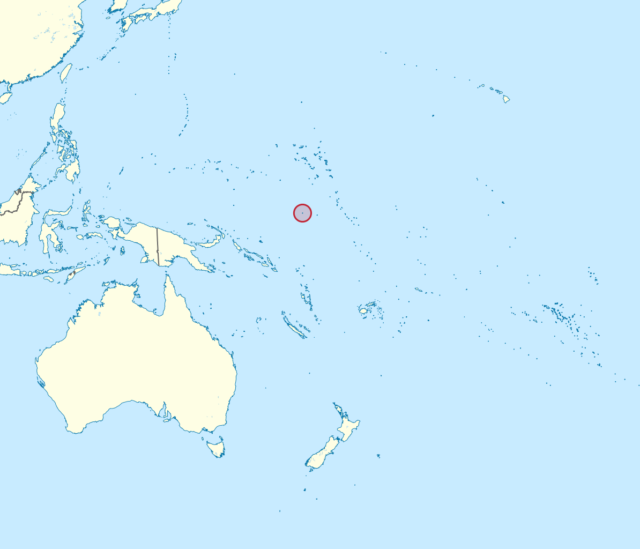
Geopolitical Report ISSN 2785-2598 Volume 38 Issue 16
Author: Riccardo Rossi
Nauru’s recent decision to transition diplomatic recognition from Taiwan to China has far-reaching consequences, significantly impacting the geopolitical landscape in the Pacific region.
This strategic move aligns with the broader trend of nations prioritising economic ties with Beijing over historical diplomatic affiliations. As the number of nations recognising Taiwan dwindles, the dynamics of regional alliances and security structures are evolving.
This report provides a comprehensive analysis of the motivations behind Nauru’s decision, evaluates the implications for the Pacific Islands Forum (PIF), assesses potential risks, and outlines scenarios for the future.
Key Findings
- Nauru’s diplomatic shift intensifies the isolation of Taiwan, leaving only three Pacific nations recognising the island nation. The geopolitical isolation of Taiwan may affect its global standing and security cooperation in the Pacific.
- Nauru’s decision, strategically timed with Taiwan’s pro-sovereignty election, shows a deliberate effort to undermine Taiwan’s diplomatic standing.
- The primary factor influencing Nauru’s decision appears to be economic, with reports suggesting a substantial financial package from China.
Background Information
The Republic of Nauru has declared its intention to shift diplomatic recognition from Taiwan to China, shortly following the presidential and legislative elections in Taiwan. The Republic of Nauru will no longer acknowledge Taiwan as a separate entity, but rather as an inalienable part of Chinese territory.
Chinese officials have praised this move, which further diminishes the dwindling number of diplomatic allies for Taiwan worldwide, reducing it to a mere twelve.
Nauru, with its strategic location and historical phosphate resources, has been a key player in Pacific geopolitics.
Despite its small size, Nauru has actively participated in international organisations, contributing to regional stability through its memberships in the Pacific Islands Forum (PIF), Micronesian Islands, and the United Nations.
The country’s geopolitical importance is further stressed by its historical role in the global phosphate trade, though overreliance on this resource has posed challenges to its economic stability.
Nauru and the Pacific Chessboard:
Geopolitical Analysis
Nauru’s geopolitical significance arises from its strategic location, limited land area, and historical phosphate wealth. In the Pacific, the country’s diplomatic realignment emphasises the intensifying competition between China and Taiwan.
Beyond potential shifts in the delicate balance of regional security dynamics, the repercussions extend to diplomatic relations. The Pacific Islands Forum, a key regional body, now faces challenges in maintaining unity amidst diverging stances on Taiwan.
The Pacific’s geopolitical chessboard is witnessing a reconfiguration, with China making strategic moves to expand its influence. Nauru’s shift signifies a broader trend where nations assess their interests and align themselves with the rising economic power of China.
As traditional Western alliances face challenges, the Pacific Islands Forum may encounter difficulties in fostering a cohesive regional approach. The delicate balancing act of maintaining diplomatic ties while addressing economic imperatives has become increasingly complex.
China’s economic inducements, coupled with the diminishing number of Pacific nations recognising Taiwan, raise concerns about potential shifts in the region’s security architecture. The Pacific Islands Forum, historically inclusive of diverse geopolitical perspectives, may witness growing pressure to conform to a more singular narrative, potentially challenging the established security order.
Read more | The Sino-American competition in the Pacific region: the case of the Solomon Islands |
Risk Assessment
The primary risks emanate from China’s expanding influence in the Pacific. As more nations pivot towards Beijing for economic gains, concerns arise about potential security implications.
The diminishing number of Pacific nations recognising Taiwan could affect the regional security order, allowing China greater diplomatic manoeuvrability within the Pacific Islands Forum.
Australia, as a key player in the region, must carefully navigate the evolving geopolitical landscape, considering both economic dependencies and security ramifications.
Scenario Analysis
- Regional Unity Maintenance. PIF member states prioritise regional unity over individual diplomatic stances, mitigating the impact of Nauru’s shift on the Forum’s effectiveness. This outcome relies on a commitment to uphold the Biketawa Declaration, emphasising a “Pacific Family First” approach to security. Maintaining a united front, despite differing views on Taiwan, becomes a priority for regional stability.
- Increased Isolation for Taiwan. With the dwindling number of Pacific nations recognising Taiwan, this scenario envisions China’s regional diplomacy gaining momentum. The reduced presence of Taiwanese representatives in PIF meetings may alter the dynamics of regional security cooperation. China’s growing influence could reshape the security narrative, challenging established Western interests in the Pacific.
- Economic Repercussions and Regional Tensions. Economic dependencies on China lead to tensions within the Pacific region. Nauru’s shift triggers a chain reaction, with other nations reassessing their diplomatic alliances. Economic imbalances and concerns about debt distress create regional fissures, challenging the stability of the Pacific Islands Forum.
Conclusion/Recommendations
Australia, being an important player in the region, should take a proactive and flexible approach to protect its long-term interests. Ensuring continued regional unity and safeguarding strategic interests in Nauru are paramount.
Australia, and therefore the United States, should remain vigilant in monitoring potential security shifts and economic dependencies, seeking opportunities for sustainable partnerships to maintain influence in the Pacific. The increasing stakes necessitate a comprehensive strategy that addresses both economic imperatives and growing security dynamics.
For those with an interest in acquiring comprehensive insights into the geopolitical dynamics of the Asia-Pacific, we encourage you to reach out to our team by sending an email to info@specialeurasia.com. We are poised to facilitate an assessment of the opportunity for you to obtain a meticulously crafted and specialised report tailored to your intelligence needs.



